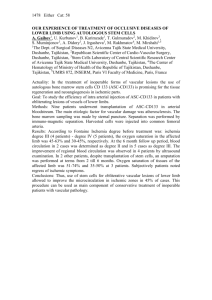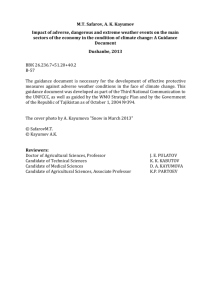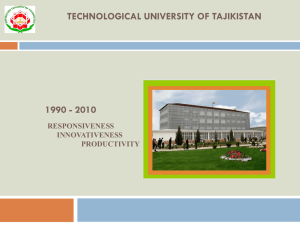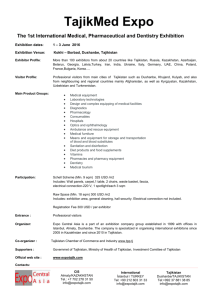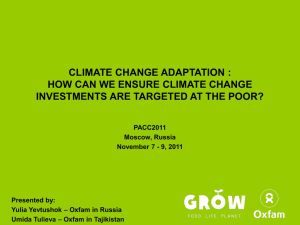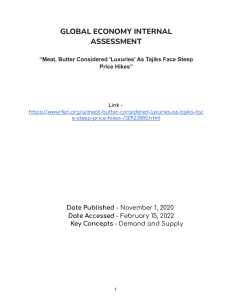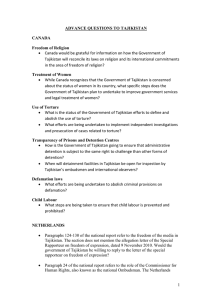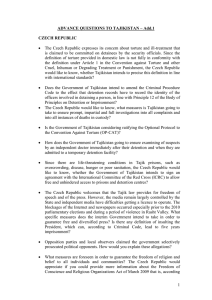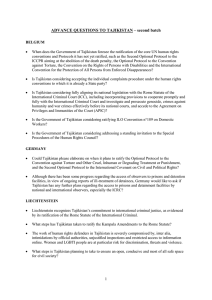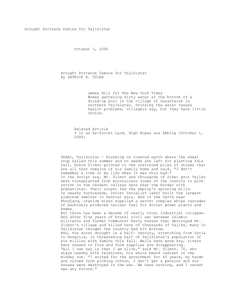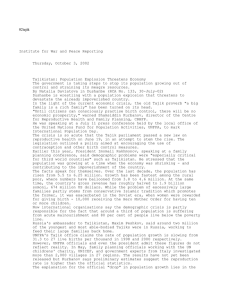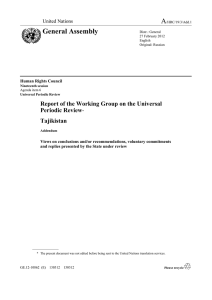Franz Wennberg, Uppsala universitet Abstract
advertisement
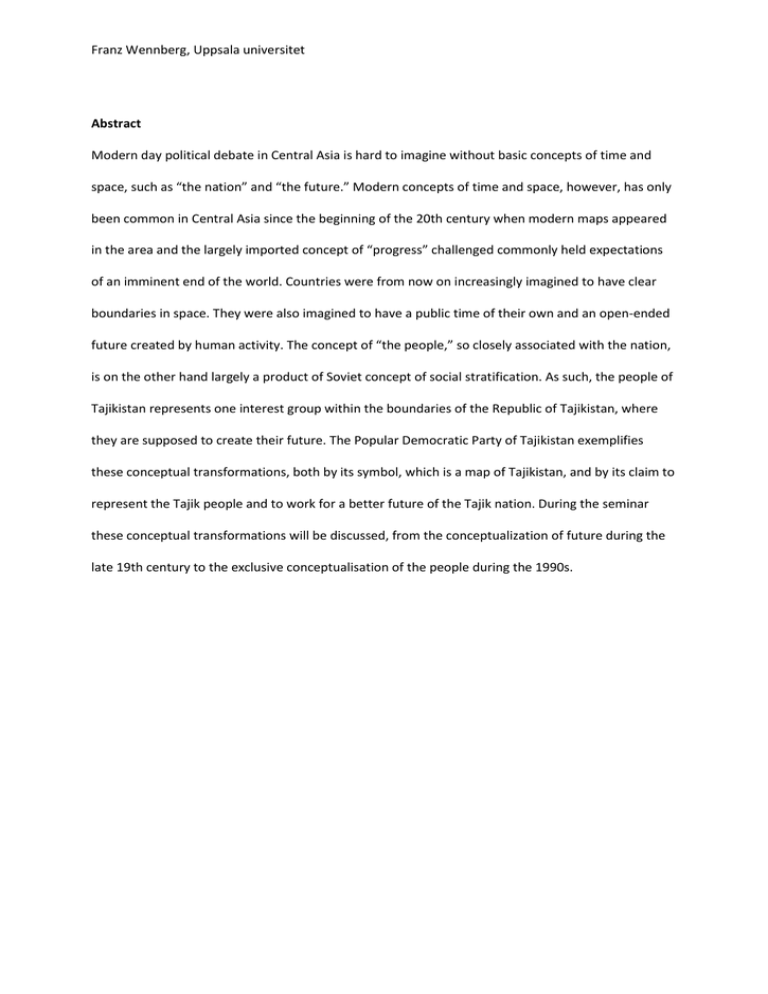
Franz Wennberg, Uppsala universitet Abstract Modern day political debate in Central Asia is hard to imagine without basic concepts of time and space, such as “the nation” and “the future.” Modern concepts of time and space, however, has only been common in Central Asia since the beginning of the 20th century when modern maps appeared in the area and the largely imported concept of “progress” challenged commonly held expectations of an imminent end of the world. Countries were from now on increasingly imagined to have clear boundaries in space. They were also imagined to have a public time of their own and an open-ended future created by human activity. The concept of “the people,” so closely associated with the nation, is on the other hand largely a product of Soviet concept of social stratification. As such, the people of Tajikistan represents one interest group within the boundaries of the Republic of Tajikistan, where they are supposed to create their future. The Popular Democratic Party of Tajikistan exemplifies these conceptual transformations, both by its symbol, which is a map of Tajikistan, and by its claim to represent the Tajik people and to work for a better future of the Tajik nation. During the seminar these conceptual transformations will be discussed, from the conceptualization of future during the late 19th century to the exclusive conceptualisation of the people during the 1990s.
